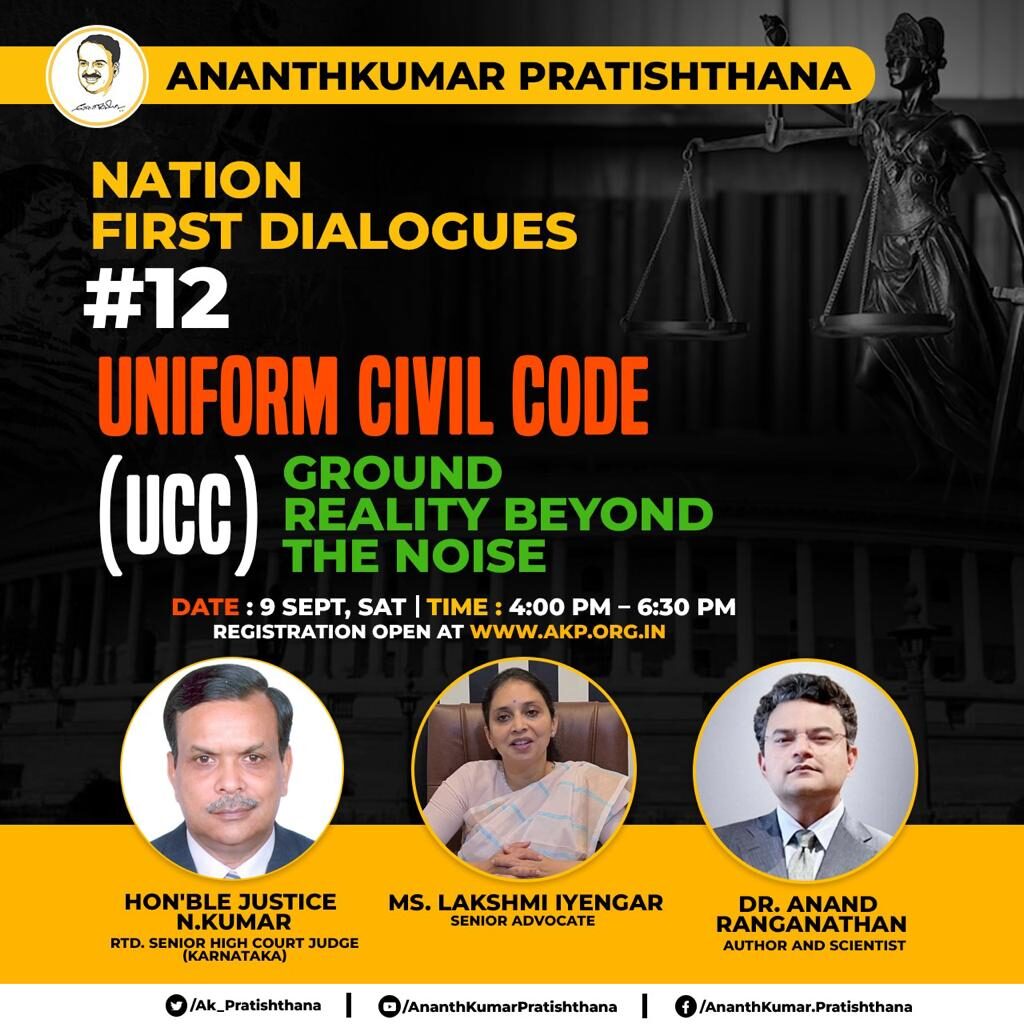
Speakers :
- Hon’ble Justice N. Kumar, Rtd. Senior High Court Judge(Karnataka)
- Lakshmi Iyengar, Senior Advocate
- Anand Ranganathan, Scientist and Author
The objective behind UCC in India is to have a common set of laws governing personal matters such as marriage, divorce, inheritance, and adoption for all citizens, irrespective of their religious affiliations.
UCC sounds simple enough but has become a very emotive issue for many decades in India.
We hear many narratives in the media and public domain.
- State cannot interfere in faith and religious matters
- Majority trying to enforce their “system” over minority. This is frequently made out as Hindu vs. Muslim narrative with Muslims as the losers if UCC comes in to effect
- UCC is not going to happen anyway. This is just a “jumla” to polarise people and distract from real issue – development. UCC is a very complex issue since it has many stakeholders and also very emotional issue since it is perceived as a matter of faith. So, it is important to make ourselves aware of underlying facts.
- Is UCC really needed in India, which is multi-cultural and secular? What have other secular countries done? Is there a parallel to be drawn?
- What does our constitution actually say about UCC?
- Is UCC beneficial to the society as whole? Does it make its citizens or certain sections of the society more secure and give them rights that they did not have?
- Has this UCC become just a political issue rather than a societal one?
- Is it just a Hindu vs. Muslim issue? Is it that somehow Hindus gain and Muslims lose out? Is it even right to think in terms of gain and loss or a zero-sum-game? Or is it to be seen as a change?
- What changes for Hindus? What is the history of changes in Hindu personal law over the last 100 years?
- What changes for the Muslims? What is the history of changes in Muslim personal law over the last 100 years?
- What about other religions – Christians, Jains, Buddhists, Parsis, Sikhs, etc.?
- What if we look through the gender lens?
There are many such aspects of UCC that we need to get a better understanding of. We are excited to invite you to share your views on the Nation First Dialogues (NFD) session on this very interesting and very contentious policy matter.